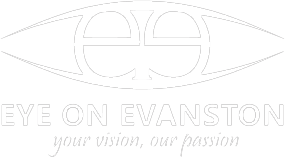If you’re among the millions of people with dry eyes, you know how irritating this condition can be. You may experience scratchy eyes, a burning sensation, and light sensitivity—and those are only a few of the most common symptoms! But there are ways to manage dry eye disease.
Fortunately, some vitamins and supplements can help soothe dry symptoms and boost your eye health. Some of the best vitamins and supplements for dry eyes include vitamins A, C, and E, as well as omega-3 fatty acids.
In some cases, lifestyle changes may not be enough to relieve dry eyes. When that happens, we can perform a comprehensive eye exam and provide recommendations for dry eye treatment based on your personal eye health.
Overview of Dry Eye Disease & Its Symptoms
Dry eye disease is a common condition that affects many Calgarians. The disease is characterized by your eyes not producing enough tears or your tears evaporating too quickly, leading to discomfort and irritation.
People with dry eyes sometimes feel like there is a foreign object in their eye, experience burning or stinging sensations, and have red or watery eyes. Other symptoms may include sensitivity to light, blurred vision, and eye fatigue.
You should visit an eye doctor if you experience chronic dry eye symptoms, as effective treatments are available.
Nutrients & Vitamins to Help Combat Dry Eyes
Here are a few of the most common vitamins to combat dry eyes:
- Omega-3 fatty acids in fish like salmon and tuna can reduce inflammation and support healthy tear production.
- Vitamin A in carrots, sweet potatoes, and leafy greens can improve eye lubrication.
- Zinc in foods like oysters and nuts can aid in vitamin A absorption and may help protect your eye from other eye diseases like age-related macular degeneration.
- Vitamin C, found in citrus fruits and bell peppers, can help prevent dry eyes by reducing oxidative stress.
Dietary Changes that May Ease the Symptoms of Dry Eyes
In some cases, making simple dietary changes can help alleviate symptoms of dry eyes. Increasing your intake of foods rich in omega-3 fatty acids, like salmon, tuna, and walnuts, can help support your tear health.
Additionally, increasing your intake of fruits and vegetables can provide your body with essential vitamins and nutrients to promote eye health. Incorporating foods such as leafy greens, carrots, and peppers may help alleviate the symptoms of dry eyes and promote overall eye health.
Staying hydrated by drinking plenty of water throughout the day can also help combat dry eyes. While these changes may not completely cure dry eyes, they may ease your discomfort and can support your overall eye health.
Over-the-Counter Supplements for Treating Dry Eyes
Some people prefer to try over-the-counter (OTC) supplements for dry eye relief. These products claim to improve tear production, reduce inflammation, and alleviate dryness. Common ingredients in OTC supplements include omega-3 fatty acids, vitamin A, and flaxseed oil.
It’s important to note that not all supplements are created equal. Before trying any OTC supplements or other products for your eyes, you should consult your eye doctor to confirm it’s safe and effective.
The Benefits of Vitamin A for Reducing Eye Dryness
Vitamin A is known for its ability to promote healthy vision and reduce the risk of eye diseases, but it can also help alleviate eye dryness. This essential nutrient can play a vital role in producing tear fluid, which helps keep eyes lubricated and free from irritation.
Vitamin A deficiency may lead to dry eyes over time, and evidence has shown that, in some cases, vitamin A supplements can improve the quality of your tears.
How Omega-3 Fatty Acids Can Improve Your Vision & Alleviate Dryness
Omega-3 fatty acids have been shown to reduce inflammation, a common cause of dry eye syndrome. Omega-3 fatty acids, particularly DHA (docosahexaenoic acid), can help preserve vision and relieve dry eyes. However, getting the right amount from food alone could be challenging.
Omega-3 has demonstrated considerable therapeutic effectiveness in treating dry eyes, so omega-3 supplements may be an option worth considering for your needs.
Additionally, omega-3s may protect the retina, potentially reducing the risk of age-related macular degeneration. By consuming foods rich in omega-3 fatty acids, you may be able to improve your vision and prevent eye discomfort.
Additional Options for At-Home Dry Eye Care
If you have moderate to severe dry eyes, preservative-free eye drops from Labitician may help lubricate the surface of your eye to provide lasting relief. The drops contain hypotonic hyaluronic acid to reduce symptoms of dry eyes and promote comfortable vision.
If you have chronic dry eye, prescription eye drops may be a better option. At Eye on Evanston, we can prescribe eye drops suitable for long-term use. Prescription eye drops can treat inflammation, increase tear production, and combat your symptoms.
If your symptoms are caused by meibomian gland dysfunction, heated eye masks and warm compresses may be an option for reducing your discomfort too. Eye masks and warm compresses for dry eyes work by providing moist, uniform heat to help melt oils clogging the glands that support your tear film.
While these remedies may not cure dry eye disease completely, incorporating them into your daily routine may provide some much-needed relief and support your overall eye health.

The Solution
Now that you know more about the different nutrients and supplements for dry eye syndrome, it’s time to contact your optometrist to discuss what options are best for your individual needs. At Eye On Evanston in Calgary, we have your best interest in mind and are here to answer any questions you may have. Contact us to book an appointment today.





